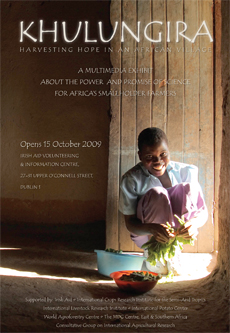In this short video, Ranjitha Puskur from ILRI shares some lessons emerging from the DFID-funded Fodder Innovation Project.
The project looks at fodder scarcity and how to address it, but from the perspectives of capacities, policies and institutions.
This current second phase of the project, she says, emerged from the realisation that the availability of technologies is not really the limiting factor, policy and institutional factors are the major bottlenecks.
She briefly introduces the innovation systems approach that underpins the project: Essentially, the aim is to form and facilitate a network of different actors in a chain or continuum of knowledge production and its use, mobilizing all their various resources and capacities to address a problem.
What outcomes and changes has she seen?
At the farm level, farmers are changing their livestock feeding and management practices; there is an emerging demand for technologies, inputs and services that, ironically, were earlier promoted without success.
“Farmers are seeing the need for knowledge and can articulate demands to service providers.”
She emphasizes that “getting a network of actors isn’t an easy process, it takes time”. Different organizations with different interests and motives have to be brought around the table to contribute and benefit.
“It needs great facilitation skills and negotiating skills which are not very often core competences of researchers like us.”
Beyond facilitation of this network formation, “we also see that linkages don’t happen automatically” … we need a facilitating or broker organisation to create them.
In her project, they work through key partner organisations: “This works well, but they needed much support and mentoring from us.”
She concludes with two final observations: Policies are a very critical factor and it is important to engage policy makers from the outset, ensuring that we know what they really want, and that the evidence base is solid.
Traditional project management approaches don’t seem to work in such projects: We need nimble financial management, and very responsive project management.
“Very traditional logframes and M&E systems seem very inadequate.”
See her presentation with Alan Duncan
More information on this project
[blip.tv ?posts_id=2966873&dest=-1]



